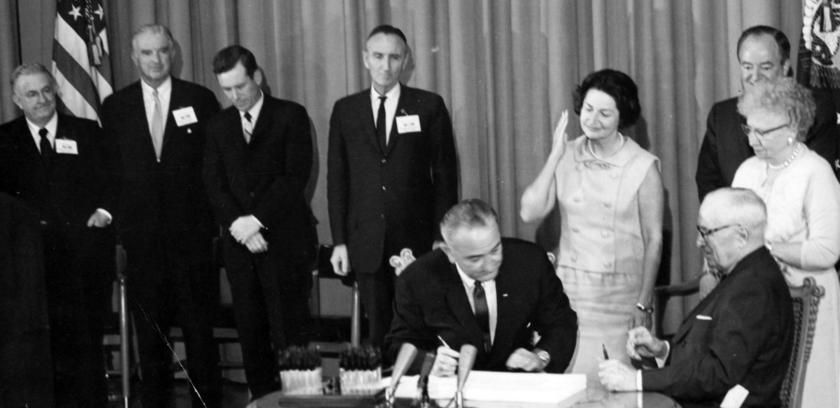Authors:
Historic Era: Era 3: Revolution and the New Nation (1754-1820s)
Historic Theme:
Subject:
Winter 2020 | Volume 64, Issue 1


Authors:
Historic Era: Era 3: Revolution and the New Nation (1754-1820s)
Historic Theme:
Subject:
Winter 2020 | Volume 64, Issue 1
Editor's Note: Portions of this essay were written by the distinguished Presidential historian Michael Beschloss for our book, The American Heritage History of the Presidents.
The first president of the United States I ever saw was Richard Nixon, during his 1960 campaign against John Kennedy. At the age of four, I am told, I was held up in the air as the future president’s motorcade sped down the Lincoln Highway in Illinois, where I lived. That fall, Nixon was promising Americans that if they made him president, “your children and grandchildren won’t grow up under Communism.” To drive home his point, the Nixon campaign wanted his parade routes lined by small girls and boys. I was one of those.
My fascination with presidents grew. At the age of six, when I watched on television as John Glenn became the first American to orbit the earth, I was struck when one of the commentators said that Glenn was putting his life in danger to advance President Kennedy’s dream that Americans get to the moon by the end of the decade. Later that year, I saw Kennedy tell us on television that he would risk nuclear war to get Soviet missiles out of Cuba. Knowing how neighboring towns were sometimes demolished by tornadoes, I wondered whether mine (population forty-six hundred) would be leveled by a nuclear attack.

Three years later, I kept on seeing, or so I thought, the same picture, day after day, week after week, on the flag-emblazoned front page of the Chicago Tribune. The image was of a smiling Lyndon Johnson signing a bill, with members of Congress clustered behind him. Only later did I understand that it only looked like the same picture, and that Johnson was enacting the most substantial body of social legislation in history. That year – 1965 – LBJ also began his first major escalation of the conflict in Vietnam. My fifth-grade teacher gravely told our class, “You boys and girls may not realize it yet, but your country is at war.
It would have been difficult for any American who grew up during the 1960s — the Cold War confrontations, the struggle for civil rights, the Great Society, Vietnam, the race to the moon — to escape the notion that a president loomed, almost physically, over the lives of every American. I presumed at the time that this must have been true for most of American history. Only much later, as an historian, did I come to understand how sharp were the ebbs and flows of presidential power — and of the quality of the men who have served in America’s highest office.
Their struggles and triumphs were